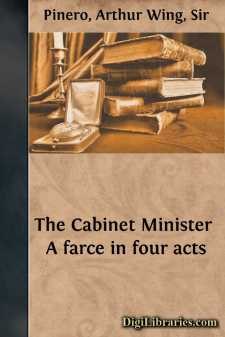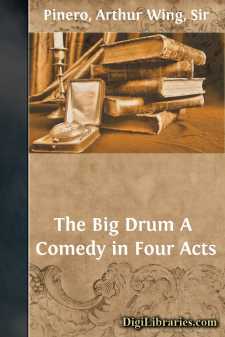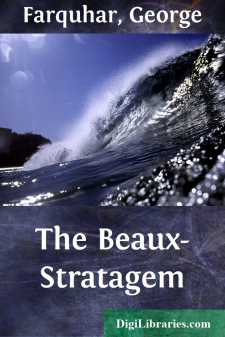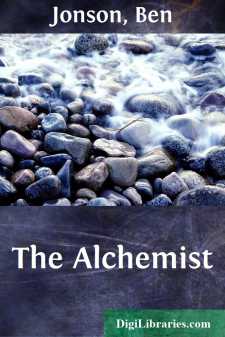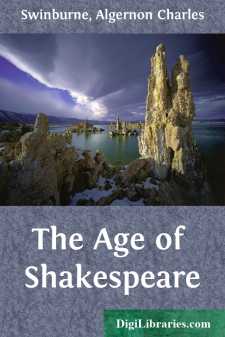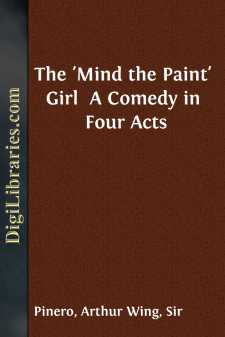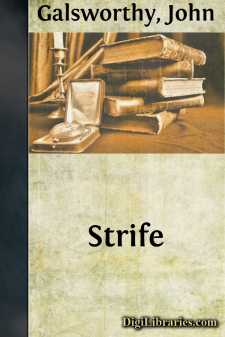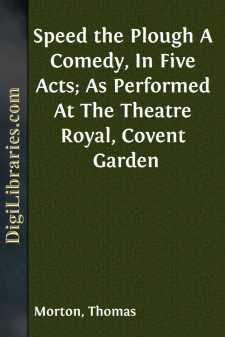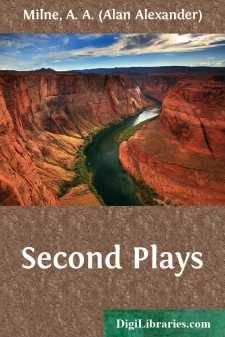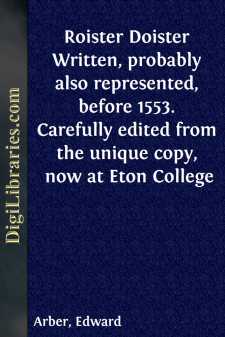Drama
- American 43
- Ancient, Classical & Medieval 45
- Asian 7
- Caribbean & Latin American 2
- Continental European 50
- English, Irish, Scottish, Welsh
- General 105
- Middle Eastern 1
- Religious & Liturgical 1
- Shakespeare 1
English, Irish, Scottish, Welsh Books
Sort by:
THE FIRST ACT. Debt The scene is a conservatory built and decorated in Moorish style, in the house of the Rt. Hon. Sir Julian Twombley, M.P., Chesterfield Gardens, London. A fountain is playing, and tall palms lend their simple elegance to the elaborate Algerian magnificence of the place. The drawing-rooms are just beyond the curtained entrances. It is a May afternoon. Brooke Twombley, a good-looking...
more...
THE BIG DRUM THE FIRST ACT The scene is a room, elegantly decorated, in a flat in South Audley Street. On the right, two windows give a view, through muslin curtains, of the opposite houses. In the wall facing the spectator are two doors, one on the right, the other on the left. The left-hand door opens into the room from a dimly-lighted corridor, the door on the right from the dining-room. Between...
more...
by:
George Farquhar
PREFACE The Author. 'It is surprising,' says Mr. Percy Fitzgerald, 'how much English Comedy owes to Irishmen.' Nearly fifty years ago Calcraft enumerated eighty-seven Irish dramatists in a by no means exhaustive list, including Congreve, Southerne, Steele, Kelly, Macklin, and Farquhar—the really Irish representative amongst the dramatists of the Restoration, the true prototype of...
more...
by:
Ben Jonson
INTRODUCTION The greatest of English dramatists except Shakespeare, the first literary dictator and poet-laureate, a writer of verse, prose, satire, and criticism who most potently of all the men of his time affected the subsequent course of English letters: such was Ben Jonson, and as such his strong personality assumes an interest to us almost unparalleled, at least in his age. Ben Jonson came of the...
more...
CHRISTOPHER MARLOWE The first great English poet was the father of English tragedy and the creator of English blank verse. Chaucer and Spenser were great writers and great men: they shared between them every gift which goes to the making of a poet except the one which alone can make a poet, in the proper sense of the word, great. Neither pathos nor humor nor fancy nor invention will suffice for that:...
more...
THE FIRST ACT The scene is a drawing-room, prettily but somewhat showily decorated. The walls are papered with a design representing large clusters of white and purple lilac. The furniture is covered with a chintz of similar pattern, and the curtains, carpet, and lamp-shades correspond. In the wall facing the spectator are two windows, and midway between the windows there is the entrance to a...
more...
by:
John Galsworthy
ACT I It is noon. In the Underwoods' dining-room a bright fire isburning. On one side of the fireplace are double-doors leadingto the drawing-room, on the other side a door leading to thehall. In the centre of the room a long dining-table without acloth is set out as a Board table. At the head of it, in theChairman's seat, sits JOHN ANTHONY, an old man, big,clean-shaven, and high-coloured,...
more...
by:
Thomas Morton
This comedy excites that sensation, which is the best security for the success of a drama—curiosity. After the two first acts are over, and pleasantly over, with the excellent drawn characters of Ashfield and his wife, and the very just satire which arises from Sir Abel's propensity to modern improvements—the acts that follow excite deep interest and ardent expectation; both of which are so...
more...
INTRODUCTION Encouraged by the reviewer who announced that the Introduction to my previous collection of plays was the best part of the book, I venture to introduce this collection in a similar manner. But I shall be careful not to overdo it this time, in the hope that I may win from my critic some such tribute as, "Mr. Milne has certainly improved as a dramatist, in that his plays are now slightly...
more...
by:
Edward Arber
INTRODUCTION. HE author and early date of the present Comedy are ascertained by a quotation in Sir Thomas Wilson’s Rule of Reason of Roister Doister’s letter to Dame Custance. The first edition of the Rule of Reason, 1550-1, is a very scarce work; of which I have been unable to see a copy. The second edition, 1552, 8vo, ‘newely corrected by Thomas Wilson,’ has not the quotation: which...
more...


